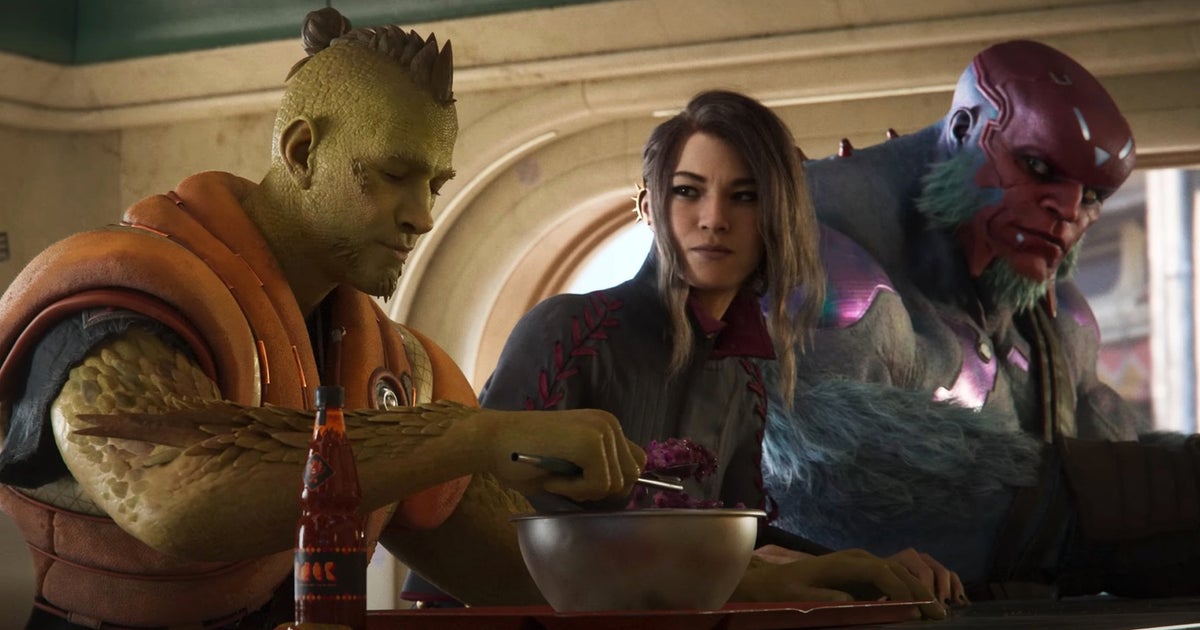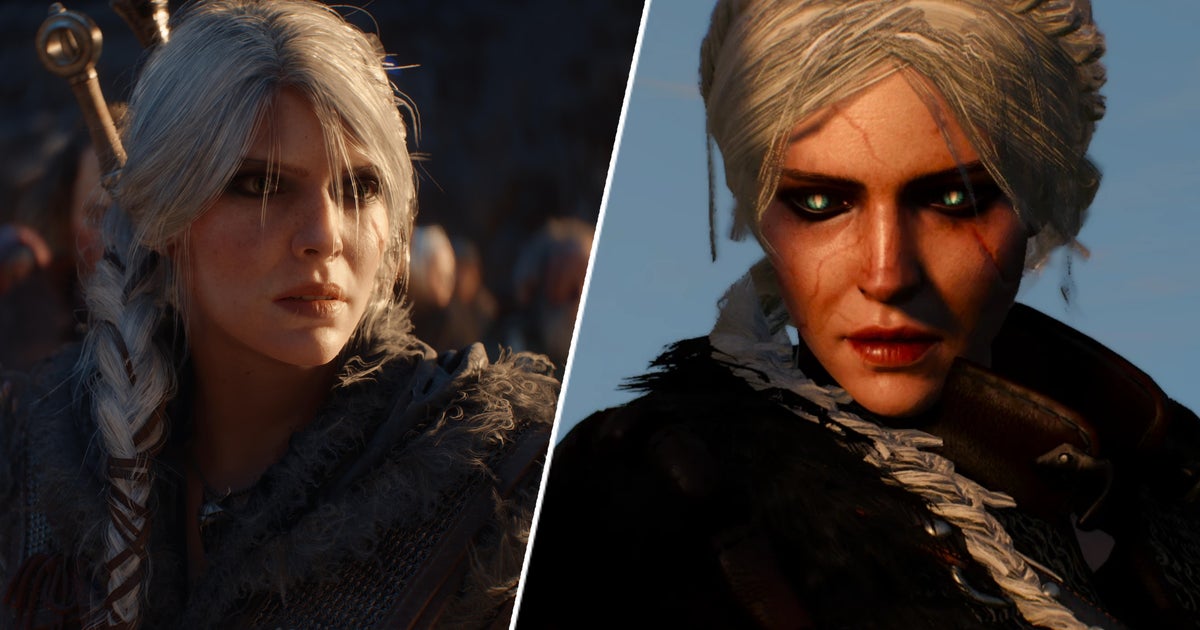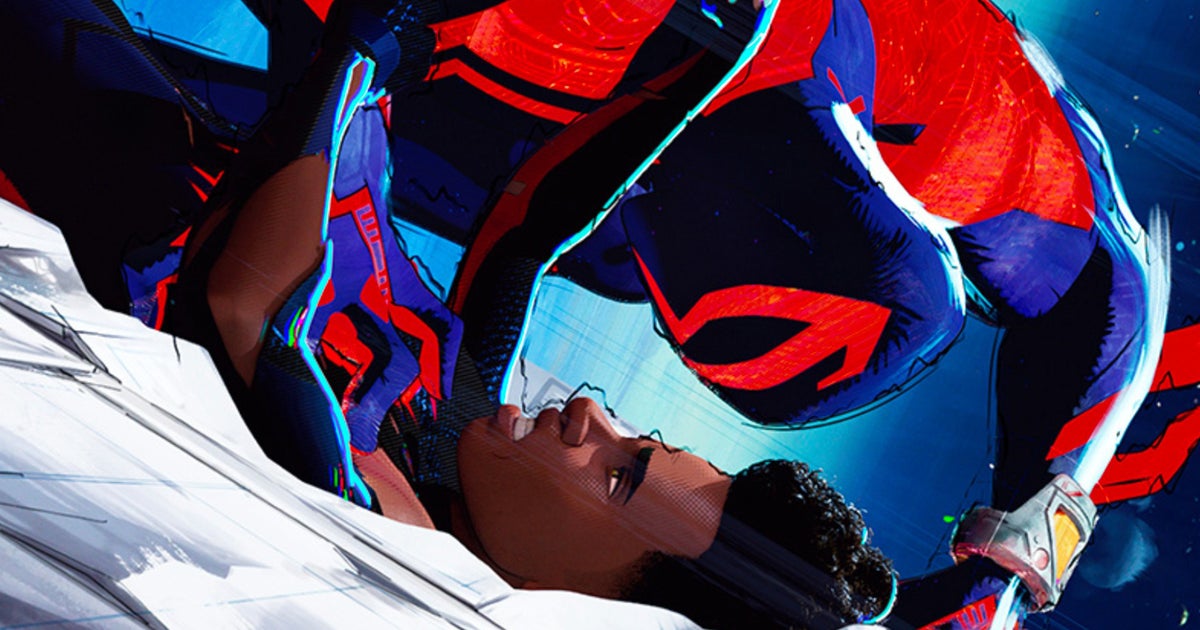It’s a rough Wednesday, but you probably don’t need me to tell you that. If, somehow, you’re learning this through Kotaku and not anywhere else, convicted felon Donald J. Trump is projected to win the 2024 presidential election over Vice President Kamala Harris. As a queer person in America, it’s pretty hard to write about video games when I know the next four years will be built upon the fearmongering Trump and his running mate JD Vance have campaigned on all year. But, still, the world turns, and we’re all expected to return to our daily lives first thing in the morning. Whether that’s heading into the office, taking kids to school, or, in my case, writing about games like Dragon Age: The Veilguard.
Entertainment journalism is a multifaceted, sometimes silly affair in the grand scheme of things. Whether you’re covering games, music, film, sports, fashion, or any other industry, you must often put your head in the sand to write about your respective beat while everything around you is on fire. A lot of sites, Kotaku included, are built upon the idea that the entertainment mediums we cover intersect with culture, politics, and community. But every “news” writer confined to a fandom-driven vertical sometimes goes entire days without reporting on the biggest news happening around them, specifically when such news impacts the human experiences of our readers yet some can’t spot an obvious connection between that and what we write about.
These are the days when our beats seem trivial, and this day, November 6, feels exactly that way. But if you can, you find a way to tie the two together. So, as promised, I will write about Dragon Age: The Veilguard. Namely a late-game scene that feels pertinent given the journey of emotions I’ve been feeling for the past two days.

The latest entry in BioWare’s fantasy series is all about recruiting and nurturing the titular team. The Veilguard is made up of people from different backgrounds, cultures, and factions within Dragon Age’s universe, and they’re all brought together for the express purpose of stopping long-slumbering elven gods from remaking the world of Thedas in their horrific, tyrannical image. Much of the moment-to-moment in The Veilguard is about team building, community outreach, and coming together with a united front to stand up against this threat. That comes in the form of fostering relationships with your teammates, as well as helping to strengthen factions across the world looking to better the lives of those around them.
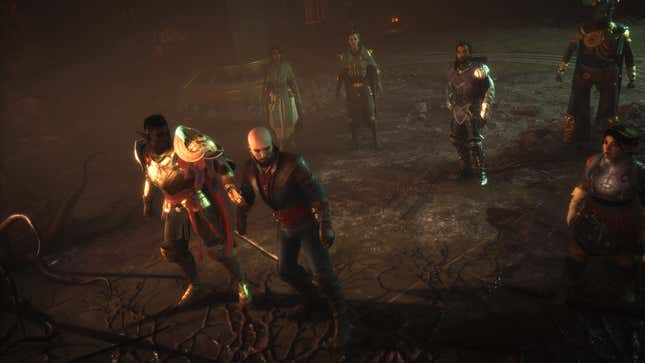
The Veilguard differs from previous Dragon Age games in that most of its choices aren’t about changing the world with the snap of your fingers. Instead, it is more about ground-level change that allows people to rise up. It was cathartic to finish it before the election, but as I played the game’s excellent final segment again last night just before the results started coming in, I felt something I’ve known has been growing within me over the past decade or so: cynicism.
The first half of The Veilguard’s final mission goes terribly wrong. You kill one of the elven gods, but you lose two members of the team you built along the way. One is captured by the enemy, the other is killed by one of the gods as they create an opening for the final strike. Then Rook, the hero of this story, is trapped within a magical, nightmarish prison that is meant to hold someone chained down by all their regrets.
Walking through the prison is a haunting sequence. Multiple statues of the teammates you lost materialize as you search the void for a way out, their voices berating you for your choices as a leader that put them in the line of fire. However, they’re contrasted by the one who made the decision to sacrifice themself, which is demonstrably more hopeful.
For me, that was Lace Harding, the dwarven scout whom I helped pave a new path for her people, while also reminding her that she doesn’t have to give in to the rage she feels for what has happened to the dwarves over the course of Dragon Age history. As I walked through the prison, I heard her voice: “You reminded me that what I feel isn’t who I am. That this world is good and I love the people in it.”
…Did I? Am I even capable of believing that myself anymore, much less telling others the same?
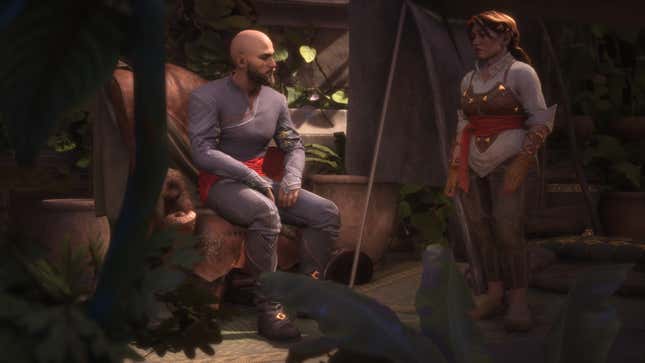
In 2016 when Trump won the first time, I cried with my friends in a movie theater in bumfuck nowhere Georgia. I had lived in a small town where my being gay was an anomaly and had seen plenty of bigotry in my day. But I had always dreamed that outside of that small town, there might be places for me to belong. Seeing a nation elect someone whose core values included fearmongering against marginalized people made me feel as though I’d never be safe from those forces, even if I escaped into a big city. Eight years later in 2024, when it became clear that Trump would be reelected for a second term while right-wing America has only become more emboldened in the attacks on women and reproductive rights, and the aforementioned fearmongering toward immigrants, people of color, and trans people, I felt nothing. It was like I’d gone numb and was unsurprised.
Most days, I want to believe the world has the capacity for good. But last night, I was reminded that even if that’s true, there are a lot of people who view abject hate as either a non-dealbreaker or an outright desirable feature for a politician to have. The antidote to such poison is, in theory, organizing, education, and finding the people who will help you build up again. But I was so jaded last night I couldn’t even grab the hands of the people extending one out. I sat in a voice chat with my closest friends, as even those on the call who had the least to lose under a second Trump presidency traced back how we even got here. They eloquently pointed to problems like Harris’ foolish attempts to court Republicans at the cost of anything that might enthuse leftists. But the optimism some of them had felt that morning was gone. I just stayed on the call and said nothing. I didn’t have the energy to preach to the choir.
Less than 24 hours later, I don’t have much interest in “I told you so,” but any marginalized person who has lived in America could tell you that Trump’s first election wasn’t a fluke. This is America. It’s made up of people who spend entire days spreading prejudiced rhetoric, as well as the people who will suffer under it. I try not to lose sight of those who are good. Moving out of that small town and into New York City has given me more lifelines to ground me because I interact with people who don’t want this to be the norm every day. They are a light in the darkness, a hand extended through a tear in a magical, regret-fueled cage, pulling me back to them.
Attaching real-world people and problems to fiction, especially as it’s happening, can easily become the kind of embarrassing nonsense that establishment democrats tout out as they meme their way through political turmoil. Left unchecked, bolting everything you experience to the media you consume leads to the lack of self-awareness you see when Potterheads call Trump “Voldemort,” or some other bumper sticker bait. This isn’t me pointing at Dragon Age and being like “our real world villains are just like the tyrannical elven gods and we gotta find our Veilguard.” But when I’m spiraling, cutting myself off from the people who care for me, even the smallest reminders that there are people who also want the world to be better is the difference between me falling off the edge.
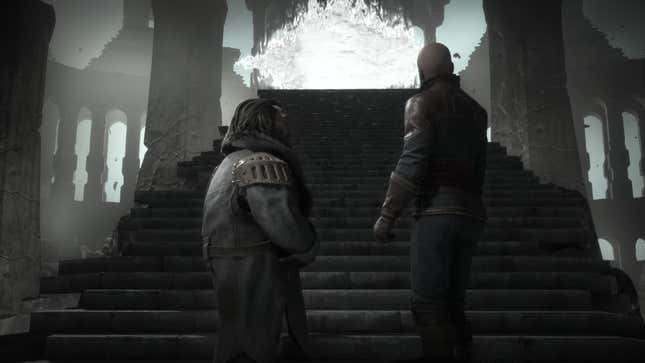
As my Rook prepares to leave the prison and face the elven gods once more, he talks with Varric Tethras, one of the long-standing mainstays of the Dragon Age franchise. He asks for advice on how to lead this team to victory, only for the dwarven storyteller to remind him he’s done it every time so far. His connections to the people who believed in the same cause he did have nudged him forward through every hardship the team has faced up to this point.
“I’d say good luck, but… you don’t need it,” Varric says, pointing at a portal as the rest of the team’s voices echo through. “You already have everything you need.”
Maybe that’s true. But, god, I need a moment to catch my breath. Maybe then I’ll remember that this is where we are, but it doesn’t have to be where we stay. For now, I think I’ll lick my wounds a little longer.


